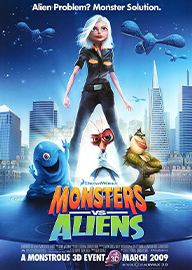살인자의 기억법 AKA Memoir of a Murderer
- 7.2
- Thriller
- 2017
- 1h 58m
- PG-13
a gripping South Korean psychological thriller directed by Won Shin-yeon, adapted from Kim Young-ha’s acclaimed novel. The story follows Byung-soo, a former serial killer suffering from Alzheimer’s disease, who struggles with fading memories while confronting the chilling suspicion that his daughter’s new boyfriend may be a dangerous murderer. Blending crime, suspense, and human drama, the film explores memory, guilt, love, and the terrifying fragility of the human mind.













Comments
0Reviews
0Summery
1Please sign in to comment.
Please sign in to review.
Memoir of a Murderer (2017) begins by presenting audiences with a chillingly unique protagonist: Byung-soo, a man once feared as a serial killer, now living a quiet and obscure life as a retired veterinarian in a provincial town. Time, however, has not spared him. He suffers from Alzheimer’s disease, his memory eroding day by day, leaving him with fragmented recollections of his past crimes, blurring lines between what he did, what he regrets, and what may be the figments of his deteriorating mind. The film introduces his condition not as a backdrop but as a central dramatic tension, weaving together the genre of psychological thriller with poignant human tragedy. The once terrifying predator is now vulnerable, unable to control his own fading mind, dependent on his daughter Eun-hee, who serves as his emotional anchor and only constant in his chaotic perception of reality. Their bond is fragile yet deeply moving, as he struggles to protect her even while knowing that his memory could betray him at any moment.
Byung-soo’s life takes a dark and destabilizing turn when he encounters Tae-joo, Eun-hee’s charming new boyfriend. Though outwardly polite and successful, Tae-joo sets off alarm bells in Byung-soo’s fragmented consciousness. He senses something familiar and dangerous about him, a predator’s aura hidden beneath the façade of civility. When a series of killings in the area coincide with his suspicions, Byung-soo’s paranoia sharpens into certainty: Tae-joo must be a murderer. Yet here lies the cruel paradox—how can a man whose memory collapses in minutes, who writes reminders in notebooks and records his thoughts on tape to remember himself, possibly distinguish between reality and delusion? Is Tae-joo truly a killer, or is Byung-soo projecting his own monstrous past into the present, confusing his memories of murder with present reality? The narrative tightens like a noose as the unreliable perspective forces the audience to question every scene, every perception, every supposed truth.
As Eun-hee grows closer to Tae-joo, Byung-soo’s desperation escalates. His attempts to warn her are met with skepticism, both from Eun-hee herself, who struggles with her father’s deteriorating condition, and from the authorities, who see only the ramblings of a confused old man. Byung-soo is left isolated in his struggle, torn between his identity as a father desperate to protect his daughter and his past identity as a killer who once inflicted violence without remorse. His Alzheimer’s becomes both his enemy and his strange ally—at times shielding him from unbearable guilt, at other times pushing him into paranoia and hallucination. Director Won Shin-yeon crafts these sequences with intensity, often blurring scenes of past murders with present dangers, creating a disorienting but gripping atmosphere where reality and memory bleed into one another. The audience is thrust into the terrifying experience of living inside a mind that cannot be trusted, where memory loss can mean either salvation or doom.
The confrontation between Byung-soo and Tae-joo evolves into a psychological cat-and-mouse game, with Eun-hee unknowingly at its center. Tae-joo, portrayed chillingly by Kim Nam-gil, reveals glimpses of menace beneath his charm, turning from protective boyfriend into potential predator, exploiting Byung-soo’s memory gaps to discredit him. Every interaction between the two men crackles with tension, as the older man, weakened by disease, struggles against the calculating manipulations of a younger, more coherent monster. Eun-hee becomes the embodiment of innocence at risk, and Byung-soo’s increasingly frantic efforts to save her give the story both its emotional heart and tragic inevitability. Whether he is succeeding in uncovering the truth or merely chasing ghosts conjured by his broken memory remains ambiguous until the final confrontations, which explode in violence, revelation, and bitter tragedy.
What makes Memoir of a Murderer stand apart is not only its suspenseful crime narrative but its poignant exploration of aging, memory, guilt, and redemption. Byung-soo is not portrayed as a simple villain turned victim, but as a man layered with contradictions: he once took lives without remorse, yet now clings desperately to the love of his daughter and to fragments of morality. His Alzheimer’s transforms him into a tragic figure, trapped in cycles of remembering and forgetting, aware enough to feel guilt but helpless to stop the erosion of his mind. The film asks uncomfortable questions: Can someone who has committed atrocities still be redeemed through love? Does losing memory absolve a person of their sins, or is guilt imprinted in ways that memory loss cannot erase? For Byung-soo, the answer is both haunting and ambiguous, leaving the viewer shaken by the final images of a man consumed not only by disease but by the weight of his past.
With atmospheric cinematography, haunting performances by Sol Kyung-gu, Kim Nam-gil, and Seolhyun, and a relentless narrative pace that shifts between tense thriller and heartbreaking drama, Memoir of a Murderer (2017) becomes more than a typical crime story—it is a meditation on identity, the fragility of memory, and the enduring complexity of human morality. The result is a gripping cinematic experience that lingers long after the credits, reminding audiences that sometimes the greatest horror is not the violence of others but the betrayal of one’s own mind